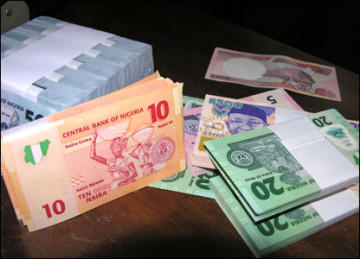Naira devaluation’ll shoot up house prices – Expert
An estate surveyor and Principal Partner, Ubosi Eleh and Co., Mr. Chudi Ubosi, has said that house buyers and renters in the country will have to pay more in the coming months because of the continuing depreciation of the naira against major international currencies and its attendant effects on construction.
Ubosi said in an interview with our correspondent that the impact of the rising prices of construction materials meant that the cost of producing houses and other construction projects would be higher and the final products more expensive.
He said, “As the exchange rate fluctuates, the prices of local and imported construction materials as well as labour will rise and have long-term effect on the prices of housing, impacting on the final products in the sense that they become more expensive because the cost of production is higher.
“The result is that the vendors want higher returns to cover their costs and justify their investments. As the fluctuation impacts on prices of everything and their lives generally, real estate owners begin to search for other means of cushioning their increased expenditure and one of these means is through their investments as they seek to bleed these investments for higher returns. The resultant effect is demand for higher prices or higher rents from tenants or buyers of these properties.”
According to him, real estate does not react immediately to exchange rate fluctuations like regular commodities but in the Nigerian experience, where exchange rate fluctuation will move prices higher, the result will most likely be that the prices of local and imported construction materials, and labour will rise.
He noted that most developers were already feeling the effect of the unstable exchange rate on their projects but had yet to take major investment decisions.
Ubosi stated that another long-term effect of the fluctuation would be the movement of people from certain locations to less attractive neighbourhoods.
He said, “When people cannot afford certain neighbourhoods where they are living, they will have to relocate to less attractive neighbourhoods where they can afford the rents or purchase with a mind-set of a certain high price; so, they are willing to pay rents slightly higher than what the precinct will command, but at the same time, less than what they would have paid in the areas where they are coming from.
“A simple illustration is a man living in Ikeja GRA whose rent has been increased from N2m to N3m per annum as his landlord seeks to cushion the effect of the currency fluctuation. If he moves to Dopemu, he will be willing to pay N1.8m per annum, saving himself N200,000, but forgetting that Dopemu rents were actually between N1.4m and N1.5m per annum. What his action has just done is that he has set new standards for rents.”
Ubosi, however, said the effect of the exchange rate fluctuation would take a little while before trickling down to the final consumers.
PUNCH.


